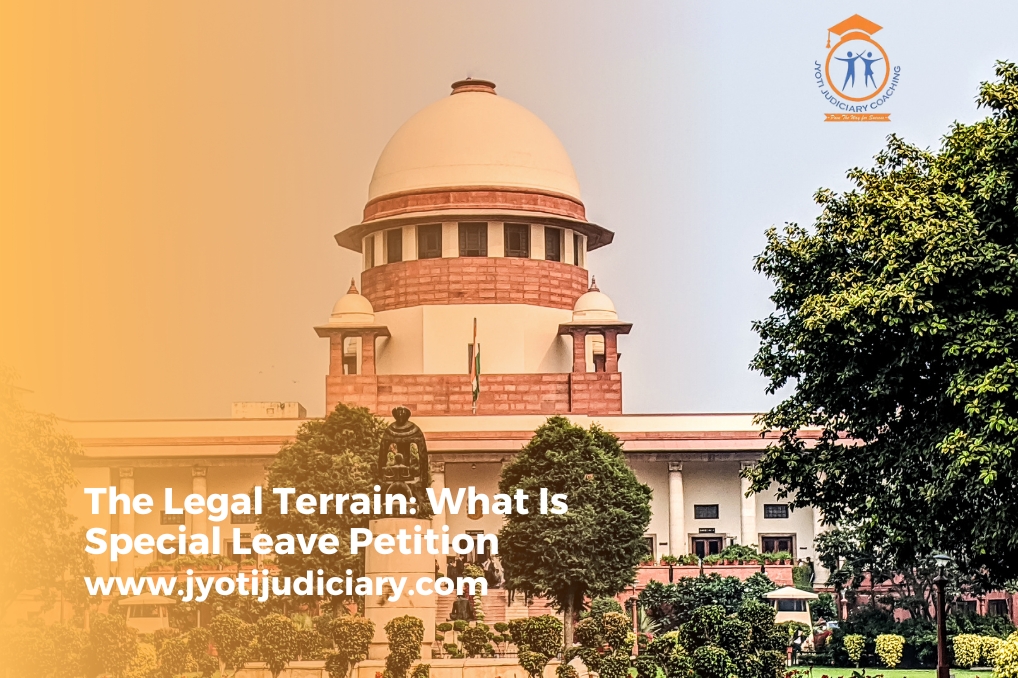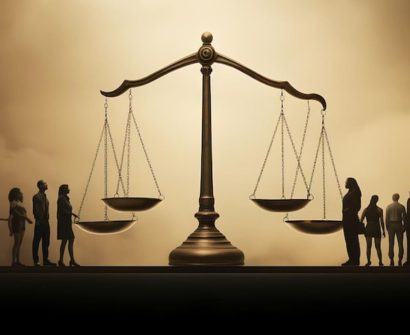
A significant instrument for seeking justice at the pinnacle of justice in India’s complicated judicial system is the Special Leave Petition (SLP). This legal remedy, which has become embedded in the Indian legal system, provides individuals and groups the chance to make an appeal directly to the Supreme Court of India in cases when significant legal problems have been put at stake or where justice is of critical importance. A complete comprehension of the Indian legal system demands a consciousness of the nuanced nature and relevance of the Special Leave Petition.
Special Leave Petition Meaning
- In cases where there is a significant legal issue or egregious injustice, the aggrieved party is granted special permission to appeal to the Apex Court against the order or verdict of any court or tribunal operating within the borders of India.
What is Special Leave Petition
- As per Article 136 of Constitution, the Supreme Court of India has the power to grant special permission to appeal against any judgment, decision, or decree in any matter or cause issued or enforced by any Court or Tribunal within the territory of India.
- The Supreme Court of India, the nation’s highest court, has the unique authority to allow an appeal against any ruling if there is a significant constitutional dispute or if egregious injustice has been committed.
- In the Indian legal system, “special leave petitions,” or SLPs, are highly valued. They grant the harmed party the right to special consideration at the Apex court when they file an appeal against a ruling or order from any court or tribunal operating within India’s borders.
What Is Leave Petition
- a special leave petition under article 136 of the Indian Constitution provides the Supreme Court of India with special authority to grant leave (permission) to appeal against any judgment or order in any case passed or made by any court or tribunal within the country of India.
- One remedy available under this provision is a Special Leave Petition (SLP) or the leave petition.
Filing Special Leave Petition India: When to be Filed?
- When there is a significant legal issue at stake or when egregious injustice has been committed, an appeal may be filed.
- The appeal must be filed in opposition to a judgment, decree, or order that possesses the characteristics of a judicial decision.
- This suggests that an order or finding that is solely administrative or executive in nature cannot be appealed.
- In addition, it is crucial that the body against whose judgment or order an appeal is being filed be classified as a court or tribunal.
SLP Legal Requirements: Grounds to File
One may file a Special Leave Petition for a number of grounds, such as:
- Significant legal issues of broad public concern.
- Mistakes made when interpreting and applying the law.
- Infringement on fundamental rights.
- Injustice committed in error.
- Conflicting rulings from various High Courts.
- Cases where there is a large public interest.
Filing of Special Leave Petition: Time Frame
- It’s critical to understand the various deadlines for submitting Special Leave Petitions (SLPs) to the Supreme Court of India.
- Filing an SLP typically has a 90-day window starting from the date of the judgment or order being contested.
- However, there is a shorter period, 60 days, in some circumstances about High Court matters.
- This is especially true when the SLP is filed in opposition to a High Court ruling that denies a certificate of fitness for appeal.
- It is imperative that litigants remember this 60-day window while pursuing SLPs in certain situations to make sure they follow the prescribed timeline.
Supreme Court SLP Process
- An SLP must include all the information necessary for the SC to decide on the permissible grounds for filing an SLP.
- The petition in question requires the proper signature of an Advocate-on-Record.
- A declaration in the SLP that no other petitions are pending before a High Court must be included by the petitioner.
- Following the filing of the petition, the SC will hear from the party that feels wronged and, based on the strength of the case, permit the other party to present their case in a counter-affidavit.
- If the Court decides after the hearing that the case merits a second hearing, it will grant it; if not, the appeal will be denied.
Special Leave Petition Cases: Important Rulings
- In the case of Lalita Kumari v Govt. of U.P., the Supreme Court talked about the significance of its inherent authority under Article 142 and its capacity to provide relief outside the purview of SLPs where it is necessary for the administration of justice.
- In the case of A.R. Antulay v R.S. Nayak, the Supreme Court ruled that it may exercise its discretion based on the facts and circumstances and is not required to grant special permission in every case.
Special Leave Petition FAQs
What are the rules for a special leave petition?
Where there is a serious legal issue or where there has been egregious injustice, an SLP case may be brought. This gives the harmed party special permission to appeal a court or tribunal decision anywhere in India’s jurisdiction to the Apex Court and have their case heard.
What is the limitation of filing a special leave petition?
90 days from the date of the High Court’s verdict or order is the deadline for filing an SLP. The statute of limitations for filing an SLP against a High Court ruling that denies a certificate of fitness for appeal is 60 days from the date of the decision that denies the certificate.
Is SLP maintainable or not?
SLP is maintainable in India; the Supreme Court may grant it at its discretion, and the court determines whether to hear a case depending on the particulars and merits of each case.
Can a third party file SLP?
Any person who feels wronged may file an SLP in opposition to the ruling or order that denies them a certificate. Only situations involving a significant legal issue are eligible for special leave; cases without regard to the case’s merits or facts are not.
What is the purpose of a special leave petition?
In cases where there is a significant legal issue or egregious injustice, the aggrieved party is granted special permission to appeal to the Apex Court against the order or verdict of any court or tribunal operating within the borders of India.
Can SLP be withdrawn?
Article 141 of the Indian Constitution states that dismissal of an SLP as withdrawn, in circumstances where the Apex Court does not identify a cause for the dismissal, and in cases where leave is not granted in the SLP, does not constitute laying down law.
Can SLP be filed after 90 days?
Within ninety days of the date of the verdict, a Special Legal Petition (SLP) may be filed against any High Court ruling; alternatively, an SLP may be filed within sixty days of the High Court’s order declining to award the certificate of fitness for appeal to the Supreme Court.
Is special leave an appeal?
Under specific restrictions, an aggrieved party may appeal against any judgment, decree, sentence, or order of any tribunal or court in India using the strong Special Leave Petition (SLP) mechanism granted by Article 136 of the Indian Constitution.
How do you frame a question of law in SLP?
For a question of law to be present in a case, it must first be supported by the pleadings; it must also originate from the Court of Facts’ credible findings of fact and be resolved as a prerequisite to a fair and appropriate resolution of the case.
With the goal of giving students the best education available for law entrance exams including the CLAT, AILET, and numerous state judiciary exams, Jyoti Judiciary Coaching, India’s Finest educational Platform, was established. Come enroll now with Jyoti Judiciary!
For any latest news, legal topics, judiciary exams notifications, patterns, etc watch Jyoti Judiciary’s YouTube channel for legal videos for any updates at https://youtube.com/@jyotijudiciarycoaching4852?si=2cwubh9d2A9urwJf










